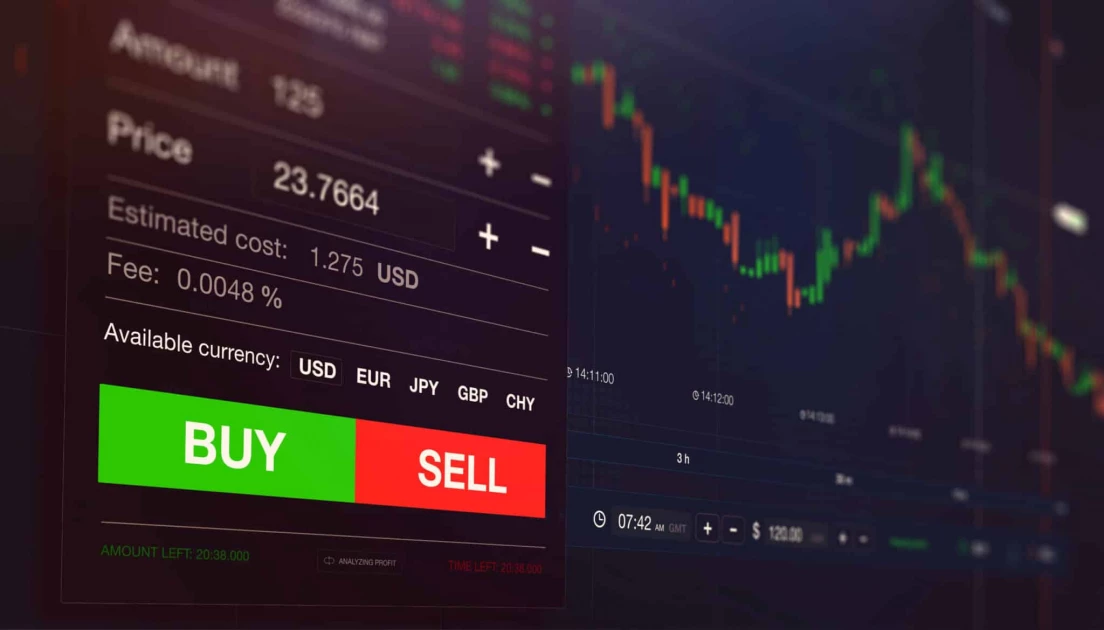1. What is Forex Trading?
Forex trading, or foreign exchange trading, involves buying and selling currencies in the global market. The aim is to profit from the fluctuations in currency exchange rates. For instance, if you believe that the value of the Euro will rise against the US Dollar, you might buy Euros and sell Dollars. If your prediction is correct, you can sell the Euros later for a higher price, making a profit.
2. How Does Forex Trading Work?
Forex trading operates in pairs, such as EUR/USD (Euro/US Dollar) or GBP/JPY (British Pound/Japanese Yen). Each currency pair has a bid price (the price at which you can sell) and an ask price (the price at which you can buy). The difference between these prices is called the spread. Traders use leverage to control larger positions with a smaller amount of capital, but this also increases risk.
3. Key Forex Trading Terminology
- Pip: The smallest price move in a currency pair. For most pairs, it is 0.0001.
- Leverage: Allows traders to control a large position with a small amount of money. It magnifies both potential profits and losses.
- Margin: The amount of money required to open and maintain a leveraged position.
- Lot: The size of the trade. It can be a standard lot (100,000 units), a mini lot (10,000 units), or a micro lot (1,000 units).
4. Major Forex Trading Sessions
Forex trading happens 24 hours a day, five days a week. Major trading sessions include:
- Sydney Session: Opens at 5 PM GMT and closes at 2 AM GMT.
- Tokyo Session: Opens at 12 AM GMT and closes at 9 AM GMT.
- London Session: Opens at 8 AM GMT and closes at 5 PM GMT.
- New York Session: Opens at 1 PM GMT and closes at 10 PM GMT.
These sessions overlap, creating opportunities for traders to profit from high liquidity and volatility.
5. Tips for Successful Forex Trading

- Educate Yourself: Understand the basics of forex trading and keep up with market news and economic indicators.
- Develop a Trading Plan: Outline your goals, risk tolerance, and strategies. Stick to your plan and avoid emotional trading.
- Use a Demo Account: Practice with a demo account to familiarize yourself with trading platforms and strategies without risking real money.
- Manage Risk: Use stop-loss orders and only risk a small percentage of your trading capital on each trade.
6. Common Forex Trading Strategies
- Scalping: Involves making numerous small trades throughout the day to capture tiny price movements.
- Day Trading: Involves opening and closing trades within the same trading day to profit from short-term price fluctuations.
- Swing Trading: Focuses on capturing gains from price swings over several days or weeks.
7. Understanding Forex Market Analysis
- Technical Analysis: Uses historical price data and charts to predict future price movements. Common tools include moving averages, trend lines, and candlestick patterns.
- Fundamental Analysis: Examines economic indicators, news, and events to assess the value of currencies. Key indicators include interest rates, employment figures, and inflation rates.
8. Choosing a Forex Broker
When selecting a forex broker, consider factors such as:
- Regulation: Ensure the broker is regulated by a reputable financial authority.
- Trading Platform: Look for user-friendly platforms with necessary tools and features.
- Spreads and Fees: Compare the costs of trading, including spreads, commissions, and overnight fees.
- Customer Service: Choose a broker with responsive and reliable customer support.
9. Forex Trading Risks
Forex trading involves significant risk and may not be suitable for all investors. Risks include:
- Market Risk: The risk of losses due to unfavorable movements in currency prices.
- Leverage Risk: The potential for amplified losses due to high leverage.
- Liquidity Risk: The risk of being unable to enter or exit trades at desired prices.
10. Conclusion
Forex trading offers opportunities for profit but requires careful planning and risk management. By understanding the basics, developing a solid trading strategy, and staying informed about market conditions, you can improve your chances of success in the forex market. Always start with a demo account and trade responsibly.



![BREAKING LIVE: President Ruto Delivering State of the Nation Address – [Watch Here]](https://newshub.co.ke/wp-content/uploads/2025/11/hq720-10-e1763643289604.avif)

